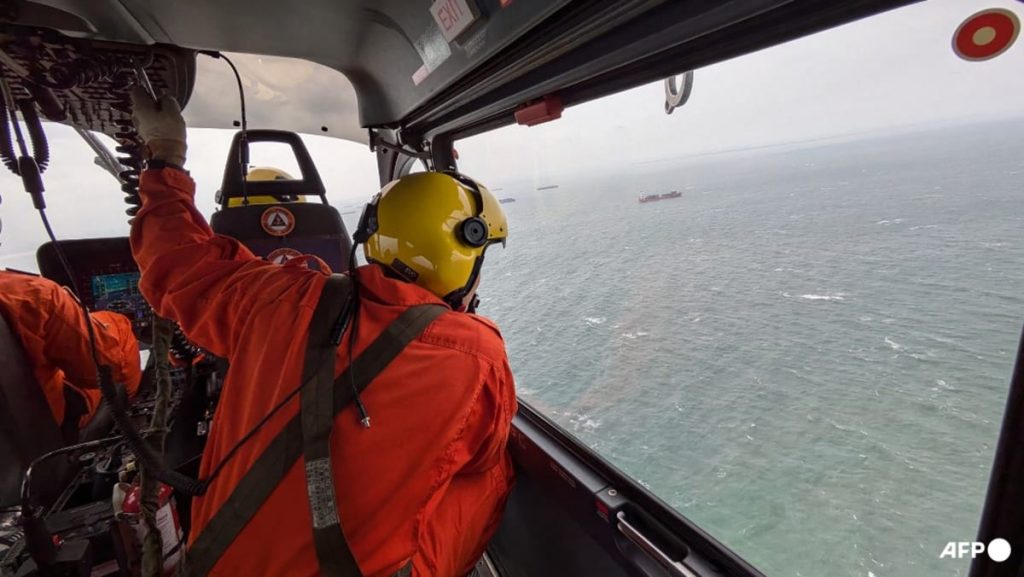A vessel sank nearly 7km from its origin in the port of Limay west of Manila, as it attempted to return to port after encountering severe weather conditions. The incident took place amidst heavy rains caused by Typhoon Gaemi and the seasonal monsoon that had been lashing Manila and surrounding regions in recent days. The state weather service reported that the monsoon had weakened by late Friday, providing a period of relative calm at sea for authorities to recover the cargo. The coast guard estimated that the extraction process would take at least seven days to complete.
The Philippines has a history of struggling to contain serious oil spills, with past incidents requiring months to clean up and causing devastating environmental and economic impacts. In one such instance, a tanker carrying 800,000 litres of industrial fuel oil sank off the central island of Mindoro, contaminating waters and beaches and causing significant damage to the fishing and tourism industries in the area. Another tanker sank off the central island of Guimaras in 2006, spilling tens of thousands of gallons of oil that destroyed a marine reserve, devastated local fishing grounds, and covered coastline in thick black sludge.
The challenges posed by these oil spills highlight the importance of effective response and cleanup efforts in mitigating environmental damage and protecting marine ecosystems. The current recovery operation for the sunken vessel off the coast of Manila underscores the complexities and time-consuming nature of such operations. Authorities are working to carefully extract the cargo and prevent further environmental harm, with the coast guard indicating that the process will likely extend over a week to complete successfully. The incident serves as a reminder of the ongoing risks associated with maritime accidents and the critical need for preparedness and response measures to safeguard coastal areas and marine life.
As the recovery operation unfolds, efforts are being made to prevent the spread of pollutants and minimize the impact on local ecosystems and communities. The government and relevant agencies are tasked with overseeing the cleanup and ensuring that affected areas are restored to their previous state as much as possible. The response to this incident also highlights the importance of regulations and guidelines for maritime safety and pollution prevention, aimed at reducing the risk of future accidents and environmental disasters. By enforcing strict measures and promoting responsible practices, authorities can work towards safeguarding marine environments and coastal regions from the devastating effects of oil spills and other hazardous incidents.
In conclusion, the recent sinking of a vessel off the coast of Manila underscores the challenges and risks associated with maritime accidents and oil spills. The incident serves as a reminder of the need for effective response and cleanup efforts to protect marine ecosystems and local communities from environmental harm. By learning from past experiences and implementing stringent safety measures, authorities can work towards preventing future incidents and safeguarding coastal areas from the devastating impacts of pollution. The ongoing recovery operation signals a commitment to addressing the environmental consequences of the accident and ensuring that affected areas are restored to their previous state. As efforts continue to extract the cargo and contain pollutants, the importance of proactive measures and coordinated response strategies in handling maritime disasters remains paramount.


